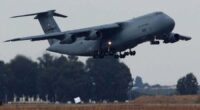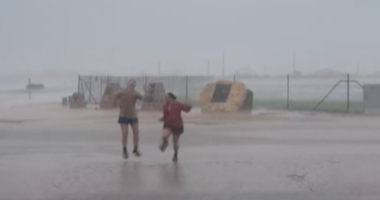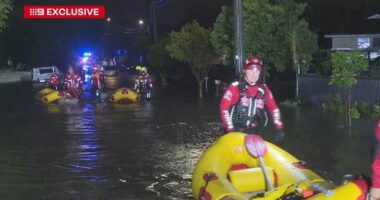Share this @internewscast.com
The deceleration at several of the country’s busiest airports has yet to spark widespread chaos.
Nevertheless, it has exacerbated the effects of what has become the longest federal shutdown in U.S. history.

Why are the flights being cancelled?
Air traffic controllers are now entering nearly a month without pay due to the ongoing shutdown. This has prompted many to call in sick, further worsening the pre-existing staffing shortages.
According to the National Air Traffic Controllers Association, most controllers are now working mandatory overtime, clocking six days a week without pay. To make ends meet, some have taken on additional jobs.
How are passengers being affected?
There was a sense of relief among many on Friday when airlines managed to keep their schedules largely intact. Those passengers whose flights were canceled were able to rebook with relative ease.
As it stands, longer international flights have remained unaffected.
There’s still a lot of uncertainty about what flights will be cancelled next.
And not everyone has the means to pay for a hotel or deal with a last-minute disruption, said Heather Xu, 46, who was in Miami on Saturday after a cruise and flying home to Puerto Rico.
“Travel is stressful enough. Then you put these disruptions in place and it really makes everything more challenging,” she said.
Rental car companies reported a sharp increase in one-way reservations Friday, and some people are simply cancelling flights altogether.
What could be the impacts beyond air travel?
First, there’s the potential for higher prices in stores, as nearly half of all US air freight is shipped in the bellies of passenger aircraft.
Major flight disruptions could bring higher shipping costs that get passed on to consumers, said Patrick Penfield, professor of supply chain practice at Syracuse University.
More losses will ripple through the economy if the slowdown continues – from tourism to manufacturing, said Greg Raiff, chief executive of Elevate Aviation Group.
“This shutdown is going to impact everything from cargo aircraft to people getting to business meetings to tourists being able to travel,” he said.
“It’s going to hit the hotel taxes and city taxes. There’s a cascading effect that results from this thing.’’











